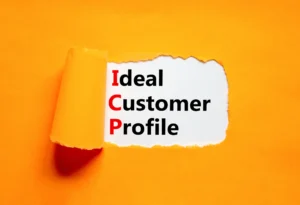Choosing the right website for your small business is key. You need to think about what you really need and what you want to achieve. A good website assessment ensures the platform fits your goals and audience.
When picking a website, think about if you’ll sell things or just share info. For selling online, Shopify is great with its strong features and easy use. But if you want to focus on your brand and meet people, Squarespace might be better.
Cost is a big deal for small businesses with tight budgets. Websites like Wix, GoDaddy, and Hostinger have different prices and features. For example, Hostinger’s AI tools help beginners make professional sites fast and cheap.
To pick the best website, look at your business needs, who you want to reach, and your budget. A detailed website analysis will show you the best platform for your site. Spending time choosing the right platform means your online presence will work well for a long time.
Key Takeaways
- Evaluate your specific business needs and priorities when choosing a website platform
- Consider whether e-commerce functionality is essential for your business
- Assess the compatibility of website builders with your budget and technical skills
- Conduct a thorough analysis of various platforms to determine the most suitable option
- Invest time in the selection process to ensure the long-term success of your website
Types of websites
Today, websites come in many types, each with its own purpose. They help small businesses and e-commerce sites reach their goals. Let’s look at some common types and what makes them special.
Small Business Websites
Small businesses need a strong online presence to grow and attract customers. Their websites act as their digital face. They share info on products, services, and how to get in touch. Key features include:
- Clear and concise information about the business and its offerings
- Consistent branding throughout the site
- Easy-to-find contact information and online appointment scheduling
- Mobile-responsive design for seamless browsing on various devices
Webvana is a top web design agency. They create engaging, user-friendly business websites. These sites help companies stand out online and connect with their audience.
E-commerce Websites
E-commerce sites have changed how businesses sell online. They offer a secure and easy shopping experience. Key parts of an e-commerce site are:
- Detailed product listings with variations and inventory management
- Secure online payment processing and shipping calculators
- Integration with dropshipping services for streamlined order fulfillment
- Discount codes, gift cards, and other promotional tools
E-commerce sales are expected to hit $6.5 trillion by 2023. This shows how important a good online store is.
One-Page Websites
One-page websites put all info on one page. They’re great for businesses with a clear focus or little content. The benefits are:
- Simplified navigation and user experience
- Ideal for showcasing a single product, service, or event
- Faster loading times due to minimal content
- Easy to create and maintain
https://www.youtube.com/watch?v=Pvi_metetxk
Portfolio Websites
Creative pros like artists and designers need a portfolio website. It’s where they show off their work. Key features include:
- High-quality images and video galleries to display work
- Categorization of projects by type or industry
- About and contact pages for potential clients to learn more and get in touch
- Testimonials from satisfied clients to build trust and credibility
| Website Type | Purpose | Key Features |
|---|---|---|
| Small Business | Establish online presence and attract customers | Clear information, consistent branding, contact options |
| E-commerce | Sell products online and provide a seamless shopping experience | Product listings, secure payments, inventory management |
| One-Page | Present focused information on a single page | Simplified navigation, fast loading times, easy maintenance |
| Portfolio | Showcase creative work and attract potential clients | High-quality galleries, project categorization, testimonials |
Choosing the right website type is key to your business goals and audience. Knowing the unique features of each type helps you create a site that represents your brand well and engages visitors.
Goals
Choosing the right website for your business means setting clear goals. About 72% of new websites fail because they don’t have clear objectives. By using SMART goals, you can boost your success chances and make sure your website fits your business strategy.
What do you offer?
Start by defining what your business offers, like products and services. Know what makes you different from others. For example, an e-commerce site might aim to boost sales with a user-friendly design and good product listings. A professional service site should highlight your skills and draw in clients with helpful content and calls to action.
Who is your audience?
Knowing who you’re targeting is key to picking the right website. Think about your customers’ demographics, what they like, and how easy they find your site. Different websites work best for different people, so pick one that meets your audience’s needs. For creative professionals, a portfolio site that looks great is best. This way, you’ll engage more customers and get more conversions.
Where are you on your journey?
Your business’s stage and growth plans should guide your website choice. Whether you’re starting out or expanding, choose a website that can grow with you. Shopify and Wix offer plans for businesses at all stages, letting you start small and expand. Picking a flexible website means it will keep helping your business as it grows.
FAQ
What factors should I consider when choosing the right website for my small business?
When picking a website for your small business, think about what you need. Do you want to sell products, grow your audience, or just look good? Think about your budget too, especially if you’re starting out. Look at options like Shopify, Wix, Squarespace, GoDaddy, and Hostinger. They offer different features and prices for various business needs.
What are the key features of a business website?
A business website should clearly show what you offer and match your brand. It should also have contact info and let people book appointments or make reservations. It’s like your online home, telling everyone about what you do and sell. It’s good for all businesses, from solo entrepreneurs to big companies, making sure they’re found online.
What are the essential features of an e-commerce website?
An e-commerce site needs to show off your products and make buying easy for customers. It should list products with options like size or color, manage stock, and take payments online. It should also have tax and shipping calculators, work with dropshippers, and let you offer discounts and gift cards. These sites are great for selling things like clothes, crafts, or unique items.
What are one-page websites, and when are they most effective?
One-page websites put all the important info on one page. They’re simple, focused, and great for special events or products. They’re perfect for businesses with a clear message or not much content to share.
What are the key features of a portfolio website?
Portfolio websites are for artists, designers, writers, and other creatives to show their work online. They act as an online portfolio, letting people see your projects and achievements. They should have galleries for photos and videos, and enough space for high-quality files.
How does my business offering influence the choice of website?
Think about what you’re selling or offering when picking a website. Are you selling things, providing services, or both? Know your unique selling points and who you’re selling to. For example, if you’re selling products, you’ll want a website that can handle product listings and stock management well.
How does my target audience affect the selection of the right website?
Knowing who you’re selling to is key when choosing a website. Think about what your customers like and how they use websites. Different websites work better for different groups of people. For example, if your customers are creative types, a portfolio website that looks good will work best.
How should my business’s current stage and future growth plans influence my choice of website?
Think about where your business is now and where it’s going when picking a website. Choose one that can grow with you. Sites like Shopify and Wix offer plans that can start small and expand as you do. Pick a website that can change with your business and support your future goals.



